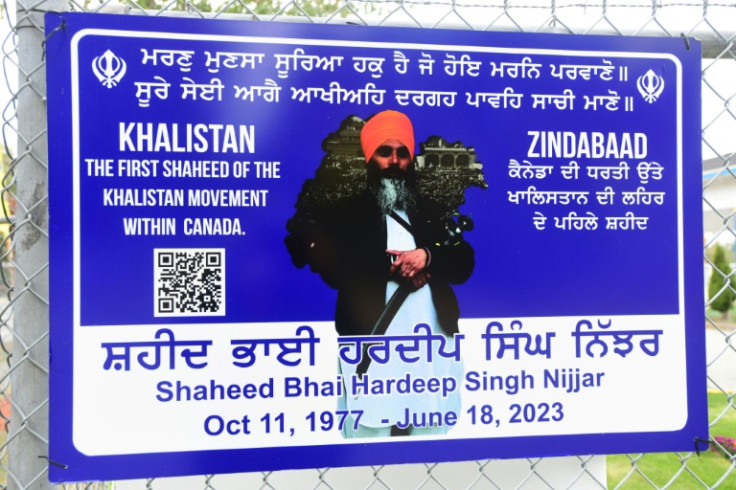India Warns On Canada Travel After Row Over Sikh Murder

India on Wednesday warned its citizens against visiting parts of Canada, the latest salvo in a diplomatic row over allegations New Delhi was involved in the killing of a Sikh separatist near Vancouver.
Canadian Prime Minister Justin Trudeau has demanded India treat with "utmost seriousness" the bombshell revelation of its probe into the murder.
The fallout prompted tit-for-tat diplomatic expulsions and a forceful denial from India, which said any the suggestion it played a role in the June killing of Hardeep Singh Nijjar was "absurd".
Without explicitly referring to the row, India's foreign ministry said it was concerned for the safety of its citizens in Canada because of "politically-condoned hate crimes and criminal violence".
"Threats have particularly targeted Indian diplomats and sections of the Indian community who oppose the anti-India agenda," a ministry statement said.
"Indian nationals are therefore advised to avoid travelling to regions and potential venues in Canada that have seen such incidents."
Nijjar was shot dead by two masked assailants outside the Sikh temple he presided over in Surrey, an outer suburb of Vancouver.
An activist for the creation of a Sikh state known as Khalistan, Nijjar was wanted by Indian authorities for alleged terrorism and conspiracy to commit murder.
He had denied those charges, according to the World Sikh Organization of Canada, a nonprofit organisation that says it defends the interests of Canadian Sikhs.
The Indian government accuses Ottawa of turning a blind eye to the activities of radical Sikh nationalists who advocate the creation of an independent Sikh state to be carved out of northern India.
Relations between Canada and India have been strained in recent months since the assassination of the Sikh leader and the demonstrations that followed in Canada.
Trudeau, who met with Modi on the sidelines of this month's G20 in New Delhi, said Tuesday that he expected India to properly consider the allegations over Nijjar's killing.
"India needs to take this matter with the utmost seriousness," he said. "We are doing that, we are not looking to provoke or escalate."
The United States has joined Canada in calling for India to reveal what it knows about the slaying.
"We are deeply concerned about the allegations referenced by Prime Minister Trudeau," National Security Council spokeswoman Adrienne Watson said in a statement.
"We remain in regular contact with our Canadian partners. It is critical that Canada's investigation proceed, and the perpetrators be brought to justice."
© Copyright AFP {{Year}}. All rights reserved.





















